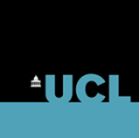The elegant study... is consistent with the themes of modern cognitive neuroscience. Every aspect of thought and emotion is rooted in brain structure and function, including many psychological disorders and, presumably, genius. The study confirms that the brain is a modular system comprising multiple intelligences, mostly nonverbal.
Steven Pinker "On Einstein's brain," The New York Times (June 24, 1999)

